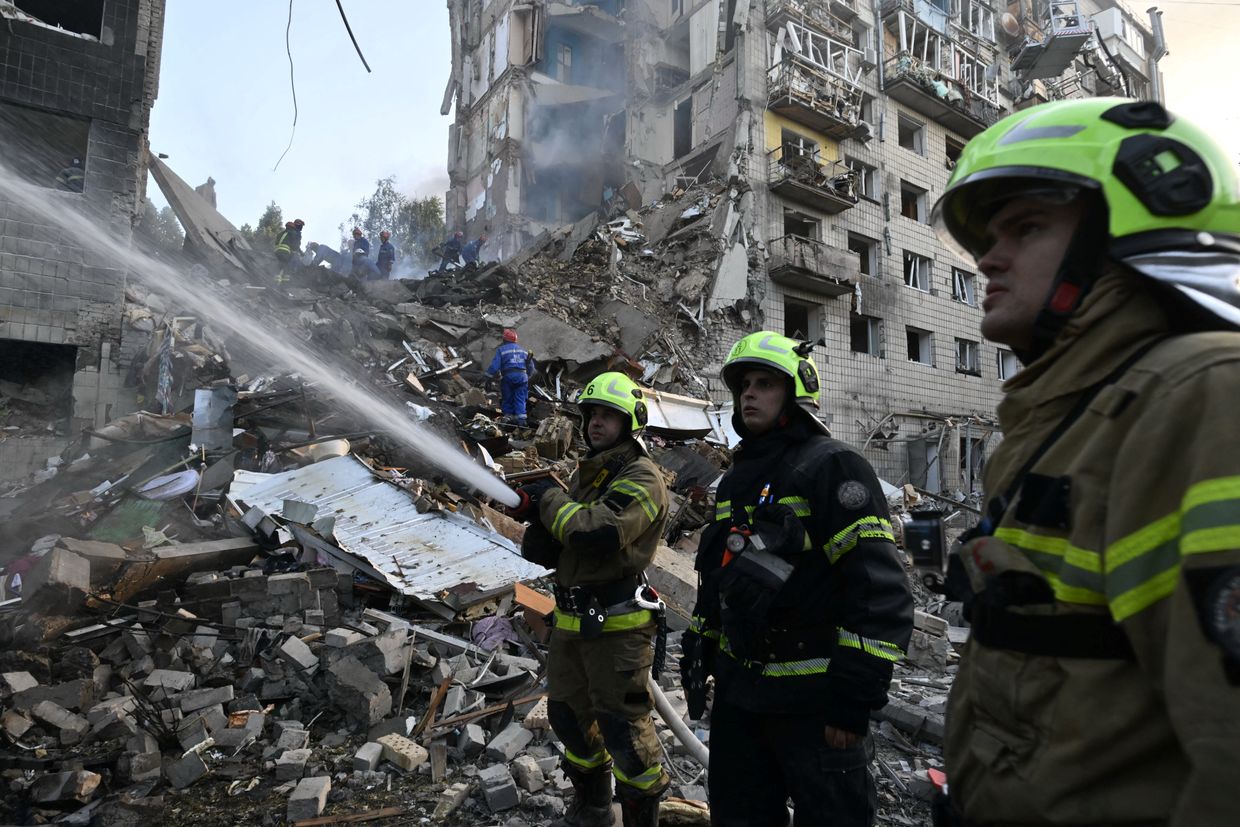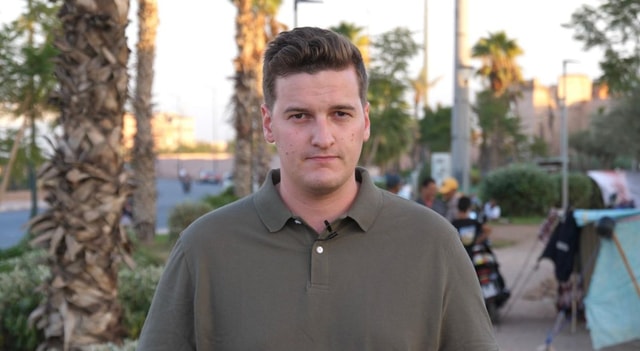After 3 years of full-scale war in Ukraine, Europe finally lays out road map to detox from Russian oil and gas

Police watch as the FSRU ship “Neptune” is pulled into Lubmin Port for LNG import at a new terminal in Lubmin, Germany, on Dec. 15, 2022. (Sean Gallup/Getty Images)
After three years of limited measures and political hangovers, the European Union has laid out a legal roadmap to finally end its long-standing addiction to Russian oil and gas. Under a new legislative proposal announced in Strasbourg on June 17, Brussels aims to cut off all remaining imports of Russian fossil fuels by the end of 2027.
The plan outlines a gradual withdrawal from Kremlin-controlled energy — with new contracts for Russian gas banned from January 2026, and existing short- and long-term contracts phased out over the following two years. Landlocked countries still hooked on pipeline gas from Russia will be given until the end of 2027 to find cleaner fixes.
"Russia has repeatedly attempted to blackmail us by weaponizing its energy supplies," European Commission President Ursula von der Leyen said, calling the move the final step in "ending the era of Russian fossil fuels in Europe for good."
For years, the EU’s energy dependency has been a source of vulnerability — one that Russia has exploited both economically and politically. Even after a dramatic drop in imports since the invasion of Ukraine, Russian gas and oil kept flowing in significant volumes.
In 2024 alone, the bloc imported 52 billion cubic metres of Russian gas and 13 million tonnes of crude oil, adding billions to the Kremlin’s war chest — a relapse many saw coming.

The new rules mark an attempt to go virtually cold turkey. Liquified natural gas (LNG) terminal services for Russian companies will be banned from January 2026, and any long-term terminal agreements signed before June 2025 must end by 2028. Crucially, importers will now have to come clean about the origins of their gas, disclosing contracts, supply routes, and partner identities — a detox of sorts for a market long clouded in opacity.
The Commission insists the EU is ready for this break. Thanks to new infrastructure, falling demand, and booming global LNG supply, officials believe the bloc can handle the withdrawal without risking an energy crisis.
By 2028, global LNG capacity is set to increase by 200 billion cubic metres — five times the amount the EU still imports from Russia. At the same time, the EU's own demand is expected to shrink significantly as renewables and efficiency targets kick in.
But not everyone is ready to cut ties. Hungary and Slovakia — both still heavily reliant on Russian energy — have criticized the proposal, warning of domestic economic fallout. Still, under EU voting rules, they can’t block the legislation alone.
It will be passed through majority voting, which requires support from at least 15 countries representing 65% of the EU population. While Budapest and Bratislava might try to dilute the final terms or drag out negotiations, the political momentum appears firmly on the side of withdrawal.
“If there is peace, which we all hope there will be soon, that would not lead to us starting to import Russian gas again."
To keep the process on track, each EU Member State will be required to submit a “diversification plan” by March 2026, setting out how they’ll end their reliance and where they’ll source energy next. The Commission and the EU energy regulator ACER will monitor progress closely and can intervene if national plans fall short or market risks emerge.
The proposal is also designed with safeguards in case of severe supply disruptions, allowing temporary exemptions — a safety net, not a relapse clause. But Brussels is clear — the goal is full recovery.
EU officials are also clear that they plan to stay clean for good.
“If there is peace, which we all hope there will be soon, that would not lead to us starting to import Russian gas again — that would be a very unwise decision," EU Energy Commissioner Dan Jorgensen said on June 17..
"Because that would just be refilling Putin’s war chest with money, that would be to repeat the mistakes we’ve done in the past."
Beyond energy security, the move is part of a broader push to clean up Europe’s energy habits. The regulation is closely tied to the EU’s clean transition strategy and industrial competitiveness plans, which aim to replace fossil fuel dependency with renewable alternatives — swapping addiction for resilience.
For a continent long caught in a toxic cycle of cheap gas and geopolitical risk, this may be the moment Europe finally gets clean.











